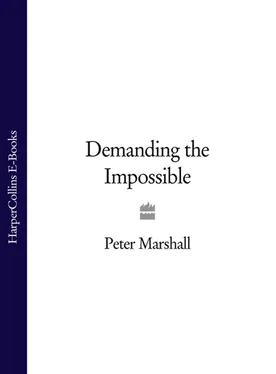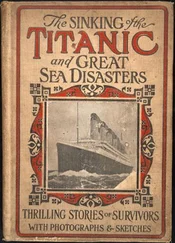It seems likely that the Tao te ching (The Way and its Power) which is attributed to Lao Tzu, was written in the third century BC. It has been called by the Chinese scholar Joseph Needham ‘without exception the most profound and beautiful work in the Chinese language’. 3 The text consists of eighty-one short chapters in poetic form. Although often very obscure and paradoxical, it offers not only the earliest but also the most eloquent exposition of anarchist principles.
It is impossible to appreciate the ethics and politics of Taoism without an understanding of its philosophy of nature. The Tao te ching celebrates the Tao , or way, of nature and describes how the wise person should follow it. The Taoist conception of nature is based on the ancient Chinese principles of yin and yang , two opposite but complementary forces in the cosmos which constitute ch’i (matter-energy) of which all beings and phenomena are formed. Yin is the supreme feminine power, characterized by darkness, cold, and receptivity and associated with the moon; yang is the masculine counterpart of brightness, warmth, and activity, and is identified with the sun. Both forces are at work within men and women as well as in all things.
The Tao itself however cannot be defined; it is nameless and formless. Lao Tzu, trying vainly to describe what is ineffable, likens it to an empty vessel, a river flowing home to the sea, and an uncarved block. The Tao, he asserts, follows what is natural. It is the way in which the universe works, the order of nature which gives all things their being and sustains them.
The great Tao flows everywhere, both to the left and the right.
The ten thousand things depend on it; it holds nothing back.
It fulfils its purpose silently and makes no claim.(34)
Needham describes it not so much as a force, but as a ‘kind of natural curvature in time and space’. 4
Like most later anarchists, the Taoists see the universe as being in a continuous state of flux. Reality is in a state of process; everything changes, nothing is constant. They also have a dialectical concept of change as a dynamic interplay of opposing forces. Energy flows continually between the poles of yin and yang . At the same time, they stress the unity and harmony of nature. Nature is self-sufficient and uncreated; there is no need to postulate a conscious creator. It is a view which not only recalls that of the Greek philosopher Heraclitus but coincides with the description of the universe presented by modern physics. Modern social ecology, which stresses unity in diversity, organic growth and natural order, further reflects the Taoist world-view.
The approach to nature recommended by Lao Tzu and the Taoists is one of receptivity. Where the Confucian wants to conquer and exploit nature, the Taoist tries to contemplate and understand it. The Taoists’ traditionally ‘feminine’ approach to nature suggests that their way of thinking may well have first evolved in a matriarchal society. While at first sight it might seem a religious attitude, in fact it encouraged a scientific and democratic outlook amongst Taoists. By not imposing their own preconceptions, they were able to observe and understand nature and therefore learn to channel its energy beneficially.
The Taoists were primarily interested in nature but their conception of the universe had important corollaries for society. A definite system of ethics and politics emerges. There are no absolute Taoist values; for good and bad, like yin and yang , are related. Their interplay is necessary for growth, and in order to achieve something it is often best to start with its opposite. Nevertheless, an ideal of the wise person emerges in Taoist teaching who is unpretentious, sincere, spontaneous, generous and detached. For the Taoists, the art of living is to be found in simplicity, non-assertion and creative play.
Central to Taoist teaching is the concept of wu-wei . It is often translated as merely non-action. In fact there are striking philological similarities between ‘anarchism’ and ‘ wu-wei ’. Just as αϱχια in Greek means absence of a ruler, wu-wei means lack of wei, where wei refers to ‘artificial, contrived activity that interferes with natural and spontaneous development’. 5 From a political point of view, wei refers to the imposition of authority. To do something in accordance with wu-wei is therefore considered natural; it leads to natural and spontaneous order. It has nothing to do with all forms of imposed authority.
The Tao te ching is quite clear about the nature of force. If we use force, whether physical or moral, to improve ourselves or the world, we simply waste energy and weaken ourselves: ‘force is followed by loss of strength‘(30). It follows that those who wage war will suffer as a result: ‘a violent man will die a violent death‘(42). By contrast, giving way is often the best way to overcome: ‘Under heaven nothing is more soft and yielding than water. Yet for attacking the solid and strong, nothing is better; it has no equal. The weak can overcome the strong; the supple can overcome the stiff.’(78) The gentle peacefulness recommended by the Taoists is not a form of defeatist submission but a call for the creative and effective use of energy.
‘Practise non-action. Work without doing‘(63), Lao Tzu recommends. In their concept of wu-wei, the Taoists are not urging non-action in the sense of inertia, but rather condemning activity contrary to nature. It is not idleness that they praise, but work without effort, anxiety and complication, work which goes with and not against the grain of things. If people practised wu-wei in the right spirit, work would lose its coercive aspect. It would be undertaken not for its useful results but for its intrinsic value. Instead of being avoided like the plague, work would be transformed into spontaneous and meaningful play: ‘When actions are performed/Without unnecessary speech/People say, “We did it!”’(17).
If people followed their advice, the Taoists suggest, they would live a long life and achieve physical and mental health. One of their fundamental beliefs was that ‘Whatever is contrary to Tao will not last long’(55), while he who is filled with virtue is like a new-born child. In order to prolong their lives the Taoists resorted to yoga-like techniques and even alchemy.
The most important principle at the centre of their teaching however was a belief that ‘The world is ruled by letting things take their course. It cannot be ruled by interfering.’(48) The deepest roots of the Taoist view of wu-wei probably lies in early matriarchal society in ancient China. The Taoist ideal was a form of agrarian collectivism which sought to recapture the instinctive unity with nature which human beings had lost in developing an artificial and hierarchical culture. Peasants are naturally wise in many ways. By hard experience, they refrain from activity contrary to nature and realize that in order to grow plants they must understand and co-operate with the natural processes. And just as plants grow best when allowed to follow their natures, so human beings thrive when least interfered with. 6 It was this insight which led the Taoists to reject all forms of imposed authority, government and the State. It also made them into precursors of modern anarchism and social ecology.
It has been argued that Taoism does not reject the State as an artificial structure, but rather sees it as a natural institution, analogous perhaps to the family. 7 While the Tao te ching undoubtedly rejects authoritarian rule, it does read at times as if it is giving advice to rulers to become better at ruling:
Читать дальше












